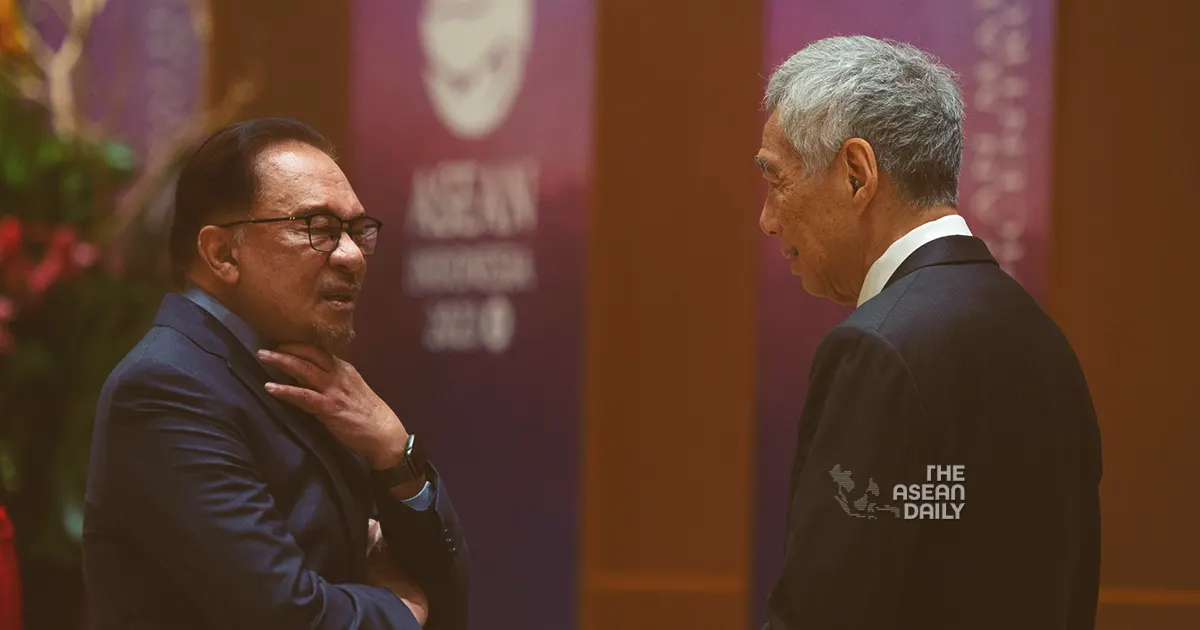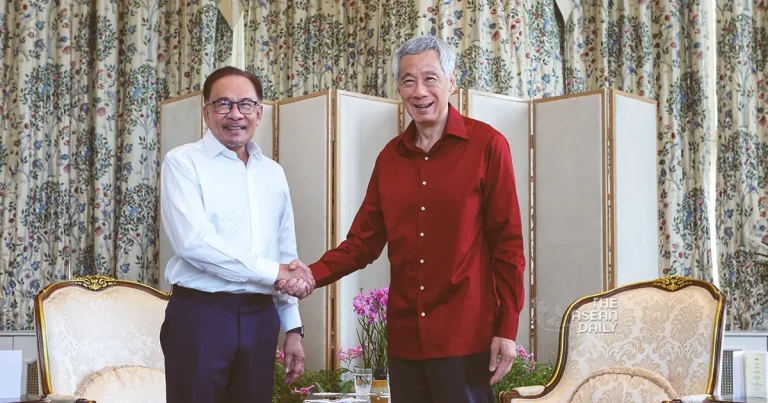28-11-2023 (KUALA LUMPUR) Malaysian social media users have responded strongly to an Israeli activist’s claim that Malaysia “bullies and intimidates” Singapore over its close ties to Israel. The statement, made by Israel War Room, an organization focused on protecting the Jewish state online, triggered a wave of backlash, with Malaysians, Singaporeans, and others from neighboring countries coming together to denounce the attempt to sow discord.
Israel War Room’s controversial post, which has garnered over 2.6 million views, attributed Malaysians’ alleged hatred towards Israel to the Jewish state’s assistance to Singapore in establishing its armed forces after gaining independence from Malaysia in 1965. However, rather than fueling conflict, the post had the opposite effect of fostering unity among Malaysians and Singaporeans, who emphasized their shared cultural heritage and dismissed efforts to create divisions.
???? MALAYSIAN ANTISEMITISM EXPOSED ????
Ever wondered why online Malaysians are so venomous and hateful to Jews and the Jewish state? Well, there’s some history here.
Southeast Asian history is replete with instances of Malaysia bullying and intimidating smaller neighboring…
— Israel War Room (@IsraelWarRoom) November 20, 2023
While Israel War Room’s social media account features a gold badge indicating it is an official organization, it has no apparent affiliation with the Israeli government. The account’s claim that Singapore’s army is modeled after the Israeli Defense Force, considered the strongest in Southeast Asia, drew attention to the economic development of Singapore rather than its military prowess. Singapore, the region’s smallest country in terms of land area, boasts the highest GDP per capita in Southeast Asia.
Singapore’s separation from Malaysia in 1965, following disagreements with the federal government in Kuala Lumpur, was highlighted by Malaysian users in response to Israel War Room’s post. They pointed out that the peaceful separation of the two nations served as an example of a successful “two-state” solution, where both countries pursued their own paths and prospered independently, while maintaining a strong relationship as trading partners. Notably, Malaysia and Singapore resolved their territorial disputes, including the ownership of Pedra Branca, amicably through the International Court of Justice.
The Malaysia and Singapore story is an example of a successful “2 state” solution. No genocide. No wars.
Both nations set their own path and both nations become prosperous in its own way. Both nations benefits from having a strong relationship together.
— J Shamsul Bahri (@jibone) November 22, 2023
Differences in Malaysia’s and Singapore’s relationships with Israel were also highlighted. Malaysia lacks formal diplomatic relations with Israel and openly supports Hamas, while Singapore established diplomatic ties with Israel in 1969. Despite these differences, Singapore’s Prime Minister Lee Hsien Loong emphasized that the divergent views should not disrupt bilateral relations, as both countries expressed their opinions on the Middle East situation. Both Malaysia and Singapore called for a ceasefire and humanitarian assistance in Gaza, aligning their positions with the majority of countries worldwide.

Malaysia’s leadership has been vocal in advocating for the Palestinian cause, leading to criticism of the United States’ stance on Gaza. During the Apec summit in San Francisco, Malaysian leader Anwar Ibrahim criticized US President Joe Biden for alleged hypocrisy regarding Palestinians. Although the US urged Malaysia to label Hamas a terrorist organization, the country has remained steadfast in its support for Palestinians. Former Malaysian Prime Minister Mahathir Mohamad, known for his strong anti-Israel stance, has faced criticism for being openly antisemitic. However, such criticism has not deterred him from expressing his views.
The social media uproar resulting from Israel War Room’s post demonstrates the unity and resilience of Malaysian and Singaporean netizens in the face of attempts to incite tensions between the two nations. The incident highlights the importance of understanding historical context, fostering peaceful relationships, and promoting dialogue to counter divisive narratives in the digital age.




